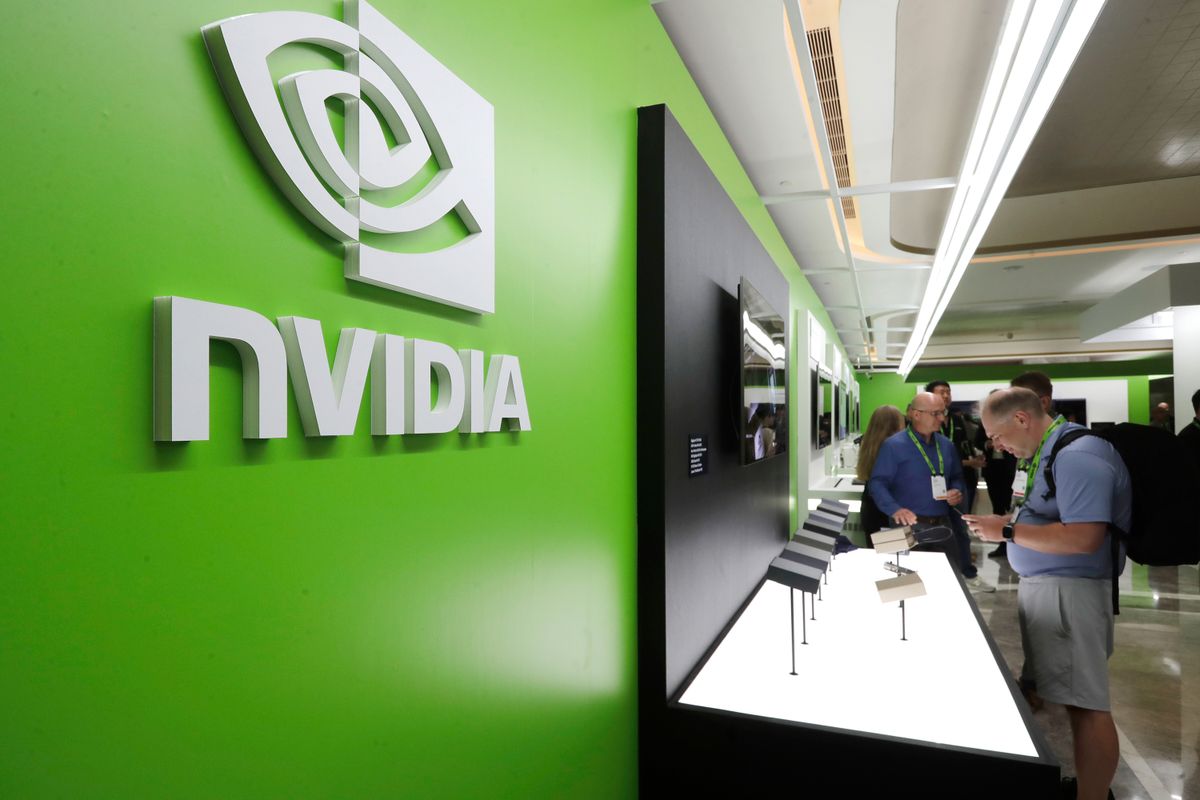SAN FRANCISCO (AP) — Nvidia’s sales of the computing chips powering the artificial intelligence craze surged beyond the lofty bar set by stock market analysts in a performance that may ease recent jitters about a Big Tech boom turning into a bust that topples the world’s most valuable company.
The results announced late Wednesday provided a pulse check on the frenzied spending on AI technology that has been fueling both the stock market and much of the overall economy since OpenAI released its ChatGPT three years ago.
Nvidia has been by far the biggest beneficiary of the run-up because its processors have become indispensable for building the AI factories that are needed to enable what’s supposed to be the most dramatic shift in technology since Apple released the iPhone in 2007.
But in the past few weeks, there has been a rising tide of sentiment that the high expectations for AI may have become far too frothy, setting the stage for a jarring comedown that could be just as dramatic as the ascent that transformed Nvidia from a company worth less than $400 billion three years ago to one worth $4.5 trillion today.
Nvidia’s report for its fiscal third quarter covering the August-October period now seems likely to elicit a sigh of relief among those fretting about a worst-case scenario.
The company’s stock price gained more than 4% in Wednesday’s extended trading after the numbers came out.
Nvidia earned $31.9 billion, or $1.30 per share, a 65% increase from the same time last year, while revenue climbed 62% to $57 billion. Analysts polled by FactSet Research had forecast earnings of $1.26 per share on revenue of $54.9 billion. What’s more, the Santa Clara, California, company predicted its revenue for the current quarter covering November-January will come in at about $65 billion, nearly $3 billion above analysts’ projections, in an indication that demand for its AI chips remains feverish.
The incoming orders for Nvidia’s top-of-the-line Blackwell chip are “off the charts,” Nvidia CEO Jensen Huang said in a prepared statement that described the current market conditions as “a virtuous cycle.”
The results — and ensuring reaction — reflected the pivotal role that Nvidia is playing in the future direction of the economy — a position that Huang has leveraged to forge close ties with President Donald Trump, even as the White House wages a trade war that has inhibited the company’s ability to sell its chips in China’s fertile market.
Trump is increasingly counting on the tech sector and the development of artificial intelligence to deliver on his economic agenda. For all of Trump’s claims that his tariffs are generating new investments, much of that foreign capital is going to data centers for AI’s computing demands or the power facilities needed to run those data centers.
“Saying this is the most important stock in the world is an understatement,” Jay Woods, chief market strategist of investment bank Freedom Capital Markets.
The boom has been a boon for more than just Nvidia, which became the first company to eclipse a market value of $5 trillion a few weeks ago, before the recent bubble worries resulted in a more than 10% decline. As OpenAI and other Big Tech powerhouses snap up Nvidia’s chips to build their AI factories and invest in other services connected to the technology, their fortunes have also been soaring. Apple, Microsoft, Google parent Alphabet Inc. and Amazon all boast market values in the $2 trillion to $4 trillion range.
By MICHAEL LIEDTKE
AP Technology Writer


